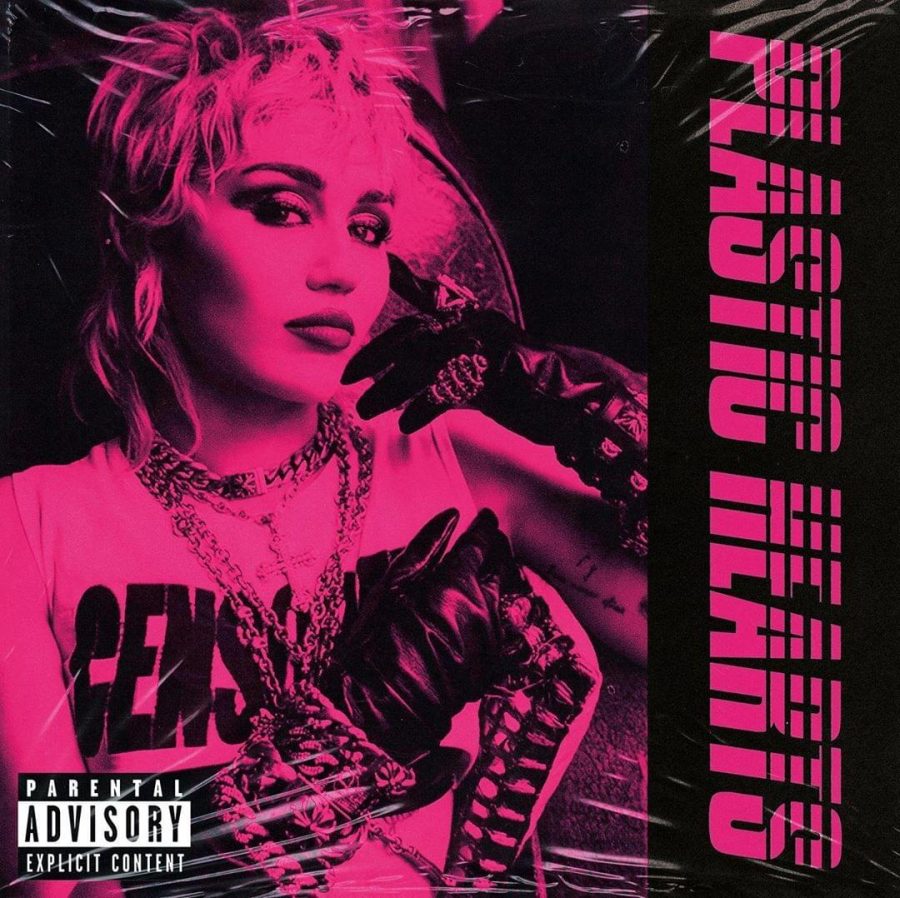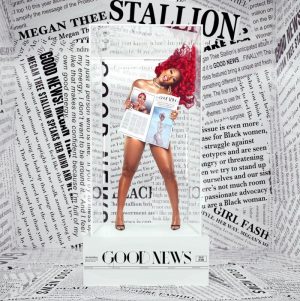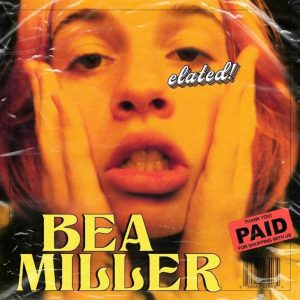Ram Jams: ‘Plastic Hearts’
November 27, 2020
Genre: Rock
On a Playlist With: Joan Jett, Blondie, Fleetwood Mac, Heart, The Struts, The Regrettes
Cyrus has spent the past decade-plus reinventing herself countless times as an increasingly edgy pop star, inching ever closer to but always just skirting around rock. “Rock Star” (Hannah Montana, 2007) notwithstanding, that is — it turns out that song was a prophecy.
We should have figured this out in 2011 when Miley Cyrus first shared a stage with Joan Jett (and then did it again, and again, and again). But it was only earlier this fall that a few impeccable covers took the internet by storm, featuring Cyrus in full ’80s-rock glam. Her effortless command of the genre was no coincidence.
With “Plastic Hearts,” her first bona fide rock album, Cyrus has finally found her niche. The album honors the couldn’t-care-less tone of Cyrus’ past projects and infuses it with a new purpose, like this is the music she is meant to make.
If those covers of The Cranberries’ “Zombie” and Blondie’s “Heart of Glass,” both included on the album, didn’t convince you of Cyrus’ affinity for rock, her original tracks, beginning with “WTF Do I Know,” immediately will.
“WTF” boasts a gritty bassline and plenty of rebellious energy: “I’m not tryna have another conversation / Probably not gon’ wanna play me on your station / Pourin’ out a bottle full of my frustration.” The classic Jett lyric “I don’t give a damn ’bout my bad reputation” would fit right in. A few songs later, the sultry “Gimme What I Want” provides a similar independent attitude and an even moodier bass.
“Plastic Hearts” isn’t supposed to see Cyrus singing in the shadow of her forerunners. It’s supposed to see her carving her own place in the rock scene.
Beyond those standard hard-rock bangers, the album surprised me at every turn. For one, upbeat tunes are matched in nearly equal measure by ballads. The soulful “Angels Like You” is reminiscent of her subdued “Younger Now” era in 2017, and “High” is a perfect homage to Stevie Nicks’ sound. (A mashup of Cyrus’ “Midnight Sky” and Nicks’ “Edge of Seventeen” is also included at the end of the album.)
I thought the penultimate track, “Never Be Me,” would be my favorite ballad, with a soothingly light drumbeat that matches the album’s title tune (that one is closer to a banger, yet the same drum line somehow works equally well). But then came “Golden G String.” From the title, I expected to hear another defiant hard rocker to close out the tracklist. Instead, Cyrus delivers a raw, vulnerable exploration of her insecurities regarding her public image.
She alludes to her past controversies and sings of her ongoing journey of self-discovery: “There are layers to this body / Primal sex and primal shame / They told me I should cover it / So I went the other way / I was tryin’ to own my power / Still I’m tryin’ to work it out.” It deviates a bit from the rock sound, but its insight into the truth behind Cyrus’ musical reinventions, “Plastic Hearts” included, makes it one of the album’s best songs.
I was glad that the non-rock songs proved their worth. Prior to the album’s release, I worried the album would suffer for a lack of true rock since its lead singles, “Midnight Sky” and “Prisoner,” bleed with dance pop flair. I am willing to forgive those because “Midnight Sky” is one of the best songs Cyrus has ever made, with its dreamy melody that sounds like empowered new beginnings and the ends of nights out.
“Prisoner,” while not the most memorable track, still fits into the album’s ’80s sound with a hook that reminds me of Olivia Newton-John’s “Physical.” Plus, Cyrus found a delicious feature in Dua Lipa, who just released her own ’80s-inspired pop album (and made a ferocious addition to the song’s vampiric music video).
However, while Lipa and Cyrus complement each other well in “Prisoner,” it’s clear that Cyrus could have carried the song on her own. I was thus expecting Lipa to become the album’s least noteworthy guest. “Plastic Hearts” is supposed to honor ’80s rock, after all, so it was only fitting to bring in some help from some of its living legends: Billy Idol and (naturally) Jett.
What I didn’t expect was for these icons to all but fade, too, into the background. Idol is featured on “Night Crawling,” and the song’s punk-infused guitar rhythms smell of his influence from the first beat. He gets a fantastic second verse, but the track ultimately has the mere feel of two people having fun rocking out together. That’s not a bad thing by any means; it’s just less than I expected from him.
I was more underwhelmed by “Bad Karma,” which has a very demure Jett feature. She, too, gets a solo verse, but it lacks her signature attack, and it’s nothing Cyrus couldn’t have sung. Quite honestly, Jett’s voice sounds so similar to Cyrus’ on this track that I almost didn’t realize Jett came in — and this is coming from someone who listens to a lot of Joan Jett.
But perhaps that’s for the best. “Plastic Hearts” isn’t supposed to see Cyrus singing in the shadow of her forerunners. It’s supposed to see her carving her own place in the rock scene.
If she can make Billy Idol and Joan Jett look like backup singers and present plenty more infectious solo music to boot, I’d say she’s earned it.
The Bottom Line: Few songs on “Plastic Hearts” stand out on their own, but together they show that Cyrus has room to grow into a long and successful rock career.
The Peaks: “WTF Do I Know,” “Midnight Sky,” “Golden G String”
The Valleys: “High,” “Bad Karma”
The Verdict: 8/10














